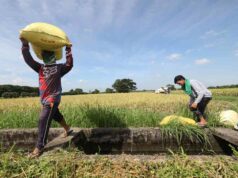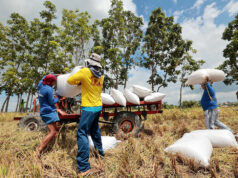FIFTY-FIVE flagship infrastructure projects are awaiting action from the National Economic and Development Authority Investment Coordination Committee (NEDA-ICC) as of mid-year.
NEDA posted the list of 75 planned big-ticket infrastructure projects for the medium term last Monday, of which 55, worth P831.44 billion, are awaiting review by the ICC technical board and the Cabinet cluster.
The ICC evaluates the fiscal, monetary and balance of payments implications of the projects, and makes recommendations to the NEDA Board, which is chaired by the President.
Six projects among the 55 — the Binondo-Intramuros Bridge, Estrella-Pantaleon Bridge, Gregorio del Pilar Impounding Project, Zamboanga Fish Port Complex rehabilitation, Asbang Small Reservoir Irrigation Project, and the Nationwide Fish Ports Project, have complete feasibility studies, and will be referred to the ICC.
Twenty-three projects meanwhile are in feasibility study stage, such as the Mega Manila Subway, Metro Manila Bus Rapid Transit Phase 3, as well as a number of bridges in Metro Manila. The remaining project studies have yet to start.
So far, only two projects have hurdled the ICC, and are awaiting NEDA Board approval. These are the P134-billion Philippine National Railway (PNR) south commuter line running from Tutuban to Los Baños, Laguna and the P151 billion long haul line linking Calamba, Laguna to Bicol.
Currently, 18 infrastructure projects worth P462.75 billion have received the green light to start the implementation process.
The country’s economic managers have said that they will prioritize government funding to initiate projects, alongside Official Development Assistance, while bidding out the operations and maintenance portion of the projects to concessionaires — to fast-track their implementation.
Socioeconomic Planning Secretary Ernesto M. Pernia has said that the government plans to prioritize the approval of infrastructure projects which can be finished within the President’s term.
The government plans to raise infrastructure and social spending to about 7.1% of gross domestic product, or P8.4 trillion, until the end of its term.
This is an effort to boost the economy to grow 7-8% next year until 2022 from 6.9% in 2016, and slash poverty incidence to 13-15% from 21.6% in 2015. — Elijah Joseph C. Tubayan



